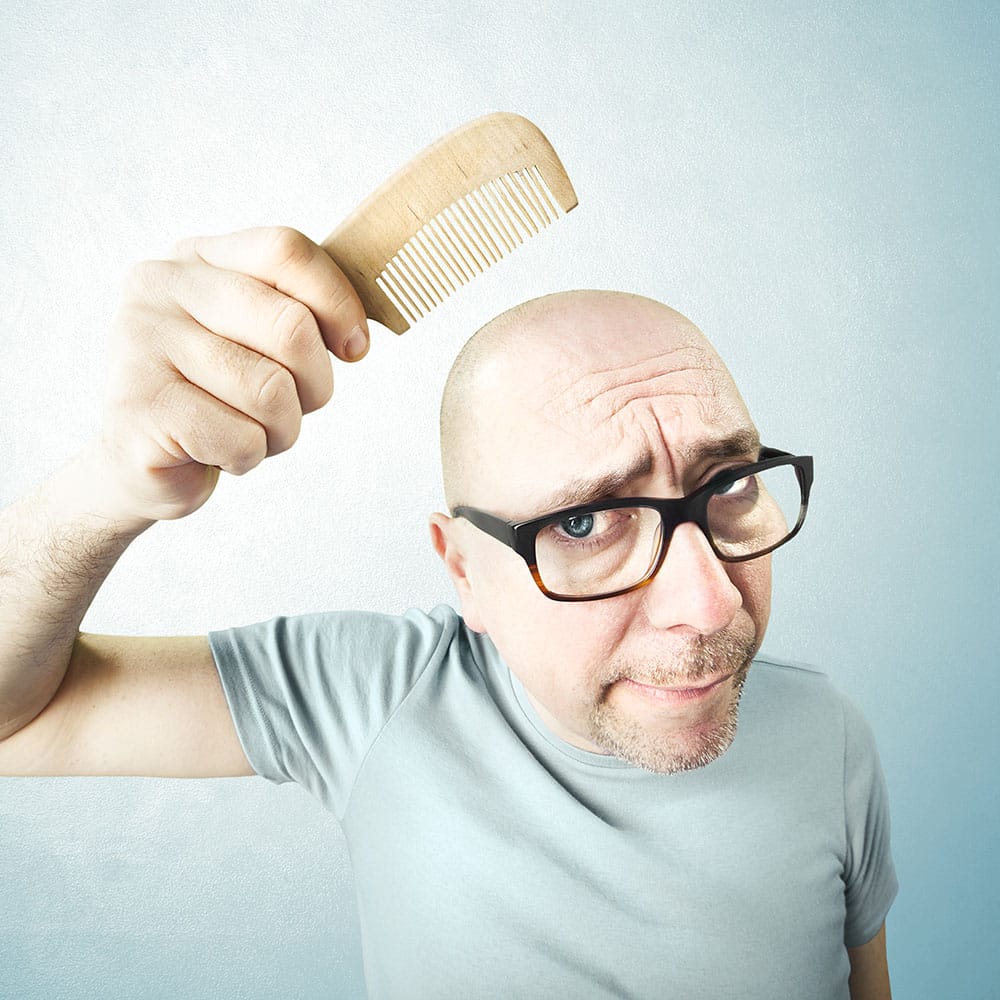Long-term, or chronic, stress puts people at risk for a variety of health problems. These can include depression and anxiety, as well as problems with digestion and sleep. Chronic stress has also long been linked to hair loss, but the reasons weren’t well understood.
Hair growth involves three stages. In growth (anagen), strands of hair push through the skin. In degeneration (catagen), hair ceases to grow, and the follicle at the base of the strand shrinks. In rest (telogen), hair falls out and the process can begin again. Hair is among the few tissues that mammals can regenerate throughout their lifetime.
The hair growth cycle is driven by stem cells that reside in the hair follicle. During growth, stem cells divide to become new cells that regenerate hair. In the resting period, the stem cells are inactive. Until now, researchers hadn’t determined exactly how chronic stress impaired hair follicle stem cells.
A team led by Dr. Ya-Chieh Hsu of Harvard University studied the underlying mechanisms that link stress and hair loss. The study was supported in part by NIH’s National Institute of Arthritis and Musculoskeletal and Skin Diseases (NIAMS). Results appeared in Nature, on March 4, 2021.
The researchers began by testing the role of the adrenal glands, which produce key stress hormones—corticosterone in rodents and cortisol in humans. Removing the adrenal glands from mice led to rapid cycles of hair regrowth. Hair follicle regeneration didn’t slow as these mice grew older, like it did in control mice. Rather, hair follicle stem cells continued to enter the growth phase and regenerate hair follicles throughout the animals’ lifespans. The team was able to restore the normal hair cycle by feeding the mice corticosterone.
Subjecting mice to mild stress over many weeks increased corticosterone levels and reduced hair growth. Hair follicles remained in an extended resting phase. Together, these findings supported the role of corticosterone in inhibiting hair regrowth.
The scientists next examined how corticosterone affects hair follicle stem cells. They found that the stress hormone was not regulating stem cells directly. By deleting the receptor for corticosterone from different cells, they determined that the hormone acts on a cluster of cells underneath the hair follicle called the dermal papilla.
Further studies revealed that corticosterone prevented the dermal papilla from secreting GAS6, a molecule they showed can activate hair follicle stem cells. Delivering GAS6 into the skin restored hair growth in mice fed corticosterone or undergoing chronic stress.
Last year, findings from Hsu’s team advanced the understanding of how stress causes gray hair. These results reveal a key pathway involved in hair loss from chronic stress. These findings may also lead to further insights into how stress affects tissue regeneration in other parts of the body.
“In the future, the Gas6 pathway could be exploited for its potential in activating stem cells to promote hair growth,” says first author Dr. Sekyu Choi of Harvard University. However, further study is needed to understand whether the same mechanism is at work in people.




